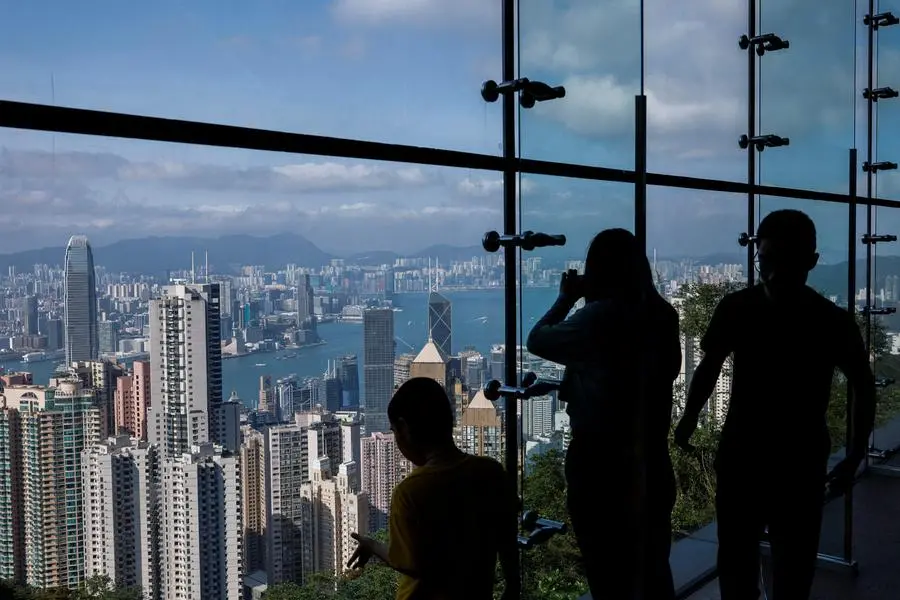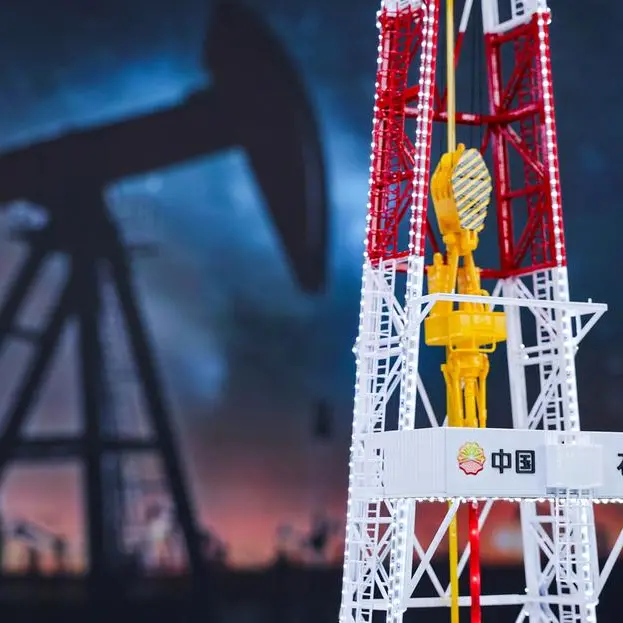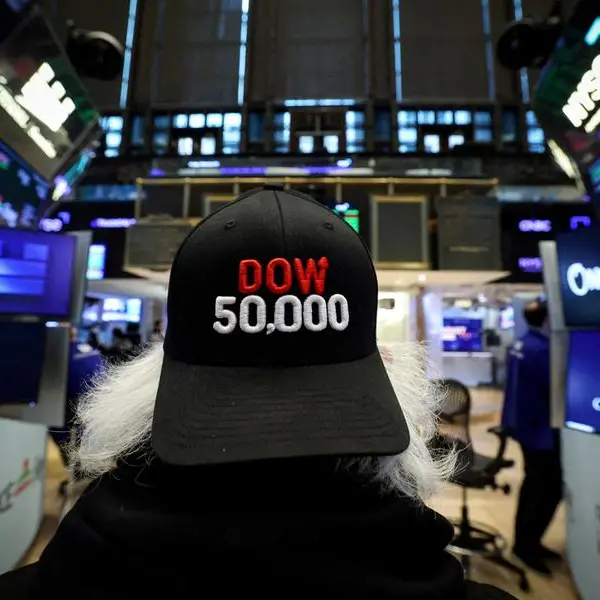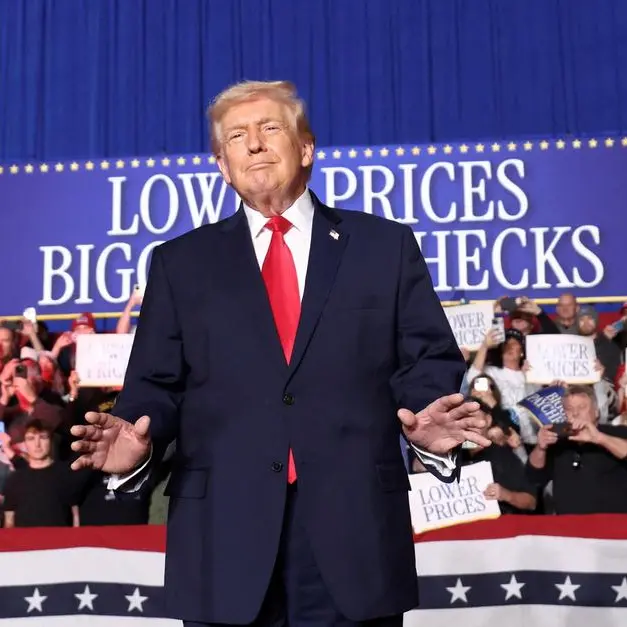PHOTO
NAIROBI - A China-Africa summit in Beijing this week takes place as a continent slowly emerging from a series of defaults seeks to define its future cooperation with the Asian nation that partly fuelled its debt binge and now faces its own economic headwinds.
Africa and its ample mineral and oil resources and population of more than 1 billion people have become the focus of intense geopolitical competition in recent years between global powers like China, Europe and the United States.
With China now Africa's top bilateral lender, the visiting heads of state bring expectations of a major concession on debt restructuring, said Yunnan Chen, research fellow at the UK-based think tank Overseas Development Institute.
"I would suspect that it will end up being a bit more low key," she said, adding that China has been "recalcitrant" on the debt issue due to the complex web of state lenders and other institutions involved.
When it comes to restructuring, China has tended to focus on extending maturities rather than writing off debt, though details of agreements reached - or indeed conditions of the original loans - remain scant.
While the Paris Club of creditor nations, the International Monetary Fund and the World Bank have decades of experience of navigating debt restructuring proceedings for poor countries, China's lending to Africa took centre stage as the pandemic struck.
The Forum for China-Africa Cooperation (FOCAC) launched in 2000 and took on an enhanced role after the 2013 inception of President Xi Jinping's Belt and Road Initiative (BRI), which aims to recreate the ancient Silk Road.
China unveiled a $60 billion financing package at the 2015 FOCAC, and repeated that in 2018. By the summit in Dakar in 2021, Beijing pivoted to trade and investments - a shift largely due to domestic financial pressures, the onset of COVID-19 and a commodities crash that hurt African economies.
STALLED PROJECTS
Chinese lenders approved loans worth $4.61 billion to Africa last year - the first annual increase in seven years - but still significantly below its 2016 peak.
Turning off the cash spigot has left incomplete railways and roads, from Kenya's modern railway line to Uganda, or a $450 million highway linking Cameroon's capital Yaounde to Douala.
That has worsened the headache for African leaders trying to boost growth amid rising debt repayments, sluggish government revenues and unrest driven by inequality in Kenya and Nigeria.
The African Development Bank puts Africa's annual infrastructure financing deficit at $100 billion.
The implementation of a giant trade bloc, the African Continental Free Trade Area, requires a ramp-up in infrastructure connectivity like roads, railways and bridges.
"In Beijing now, the issue is how do we complete the projects that have already started?," said Kenyan international relations expert Peter Kagwanja.
High debt loads and shrinking fiscal space are also high on the agenda.
Zambia owed 20% of its external debt to China before it managed to complete a lengthy restructuring in July. China plays a major role in Ethiopia, also stuck in a rework.
By comparison, Beijing played a lesser part as a lender in Ghana and Chad, which progressed more quickly through restructurings under the G20's Common Framework.
"While the maintenance of strategic relationships in Africa is key to China's long-term objectives, risk mitigation is necessitated by Africa's debt challenges," said Boston University's Global Development Policy Centre last week.
A chunk of Beijing's lending - for example to Angola - is arranged as controversial resource-backed loans. Countries like Uganda reject those deals amid concerns future generations would lose out.
Latest data point to China adopting a new strategy of skirting debt-laden economies by working with African multilateral banks. Two of last year's 13 approved Chinese loan deals were to the African Export-Import Bank, a regional development institution.
AVOCADOS AND MINERALS
At the 2021 FOCAC, Beijing promised to boost imports from Africa to $300 billion by end 2024. According to China's foreign ministry, they totalled $305.9 billion in 2-1/2 years to July this year, exceeding the goal already.
"China has always attached great importance to the implementation of the outcomes of the Forum on China-Africa Cooperation," Mao Ning, a foreign ministry spokesperson said at a news conference in Beijing.
But diversifying imports is a tough task.
A Reuters analysis showed imports skewed in favour of mineral sectors in countries like Botswana, Namibia, Zambia, Zimbabwe and the Democratic Republic of the Congo.
Promoting balanced trade featured prominently when South Africa's President Cyril Ramaphosa met his Chinese counterpart on Monday ahead of the start of the summit.
China has opened up its vast market to fresh avocados from Kenya for example, but a duty of 30% meant growers opted to export to the EU where they can do so duty free.
And how much fresh funding from Beijing could be forthcoming remains to be seen.
Analysts say nations such as Kenya, seeking cash to complete its $5 billion railway project, or Angola, looking for financing to diversify its economy, might find themselves walking away empty handed.
"China will do more of information sharing and keeping relationships with Africa. A lot of conversations will be bilateral and information will be kept off the radar," said Fred Muhumuza, a lecturer at Makerere University's business school in Kampala. "There will be no increase in loans."
(Reporting by Duncan Miriri; Additional reporting by Joe Cash in Beijing; Graphic by Sumanta Sen; Editing by Karin Strohecker and Philippa Fletcher)





















